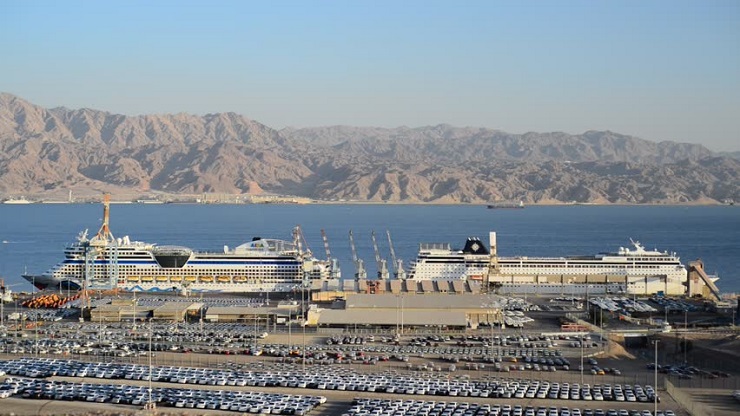It is unlikely that anyone today would object to the assertion that the pro-Israeli lobby plays an important, and sometimes decisive, role in American election campaigns, in many decisions made by the US Congress and executive authorities, and constitutes an essential part of the American political machinery. The pro-Israel lobby in the United States is a unique instrument that influences almost any processes that occur in the country due to the large diaspora, and its prominence in the country’s political and economic activities, as well as in the financial sector and media.
In March 2011, Helen Thomas, the longtime member of the White House press corps, during an interview with Playboy magazine said that the Jews have power over the White House and the Congress, and that the latter are in the pocket of the pro-Israel lobby. Rejecting any political correctness, she clarified that the Israeli lobby is “funded by wealthy supporters, including those from Hollywood. Same thing with the financial markets. There’s total control.”
That is exactly why Israel has become that very wild card that, to a significant degree, determines the results of any election campaign in the US.
Incidentally, it is largely due to the Democrats’ disregard for this wild card under Barack Obama that they failed to achieve victory in the 2016 presidential election campaign. You can judge for yourselves – could the Democrats really have counted on support from the Israeli lobby after the steps Obama took that infringed on the interests of Israel, such as US support on the UN Security Council for a resolution urging the Jewish state to stop building settlements in occupied Palestinian territories? Or their participation in a six-party nuclear deal with Iran, and signing an agreement with Tehran?
The position of the pro-Israeli lobby on similar objectionable steps taken by the Obama administration, and the Democratic Party, in June 2016 was expressed by Washington Times columnist Todd Wood, who wrote that “Obama has significantly undermined the special relationship between the United States and Israel, as a result of which Tel Aviv has to seek support from Vladimir Putin, who has became the ‘new sheriff’ in the Middle East”.
Another confirmation of Tel Aviv’s negative attitude toward the policy pursued by the Democratic Party was Netanyahu’s refusal, having arrived in the United States in the midst of the election campaign before the US primary elections in 2016, to meet with Obama – despite the agreement that had been reached to do so – but he then spoke at a joint session of the US Congress, and at a conference held by the American Israel Public Affairs Committee.
Taking their cue from these events, Donald Trump and his administration timely drew the right conclusions, and received the support of the Israeli lobby in 2016. These are precisely the reasons why Israel is the chief beneficiary from Donald Trump’s election in 2016, and Donald Trump himself, during his first presidential term, actively corrected the “Democratic mistakes” that he inherited from Obama. That is why the US, at Trump’s initiative, abruptly withdrew from the six-party agreement on Iran, took active measures for the “deal of the century” in reaching a settlement in the Middle East, and forced certain Muslim countries to “settle their future relations with Israel”.
To achieve these goals, the Trump administration, along with Israel, launched the opportunities for propaganda using not only the national, but also many foreign media outlets that, like those in the United States, are controlled by the Israeli lobby. This was especially clearly seen at the stages of inducing the UAE, Bahrain, and Sudan to swiftly sign agreements on settling their relations with Israel, with the direct participation of Donald Trump himself when they were being signed. Now this work is being done by the White House, together with Saudi Arabia and several North African countries.
A propaganda meme has already been launched on the benefits of quite a few aspects of this for other Muslim countries, which will follow the example set by the UAE, Bahrain, and Sudan in quickly establishing diplomatic relations with Israel. In particular, one very important topic for Muslims – the advantage of making the religious Hajj pilgrimage to Mecca via Israel – is being played up intensively. To accomplish this, on October 25 the Israeli port city of Eilat was visited by a delegation from the Emirati company DP World (the third-largest port operator in the world), headed by its General Director Sultan Ahmed bin Sulayem, which talked with Gideon Holmer, the general director of the port, and Shlomi Vogel, one of its owners, about the possibilities of maritime cooperation between the two countries to make Eilat one of the starting points for the pilgrimage to Mecca. In particular, the idea of creating a ferry service between Eilat and the port of Jeddah in Saudi Arabia for the Hajj to Mecca was discussed. According to the plans that were suggested, Israeli Arabs and Muslim tourists from different countries would be able to directly get from Eilat by ferry to Jeddah, from where shuttle buses would take them to the sacred sites (it is only 70 km from Jeddah to Mecca).
There is no doubt that the project could become very profitable in the near future, and not only for the Israeli economy, which is experiencing significant problems today, but also for many Muslims planning their hajjes to Mecca. It would be very beneficial in economic terms for Saudi Arabia, and this is already being used by Washington as one of the levers to push Riyadh to quickly sign an agreement on recognizing Israel.
It is not very tough to guess that by taking these steps the current White House administration hopes to receive active support for its Republican candidate during the upcoming elections – and not only from the pro-Israel lobby in the United States, but also from representatives of Muslim communities.
Valery Kulikov, a political analyst, exclusively for the online magazine “New Eastern Outlook”.

